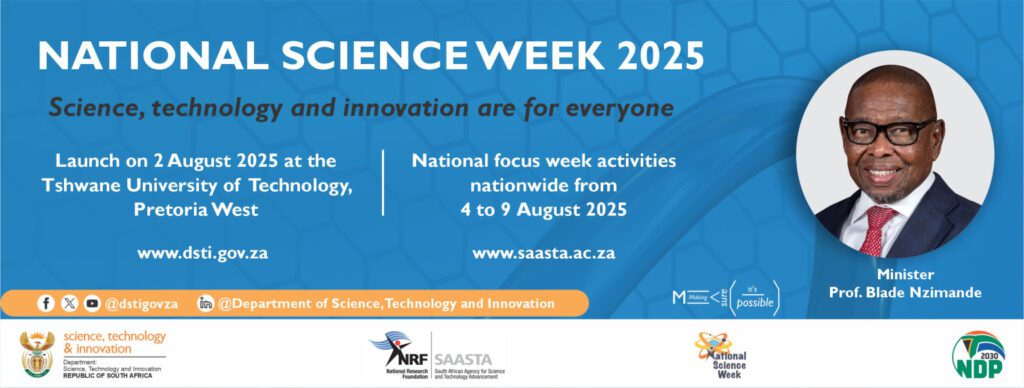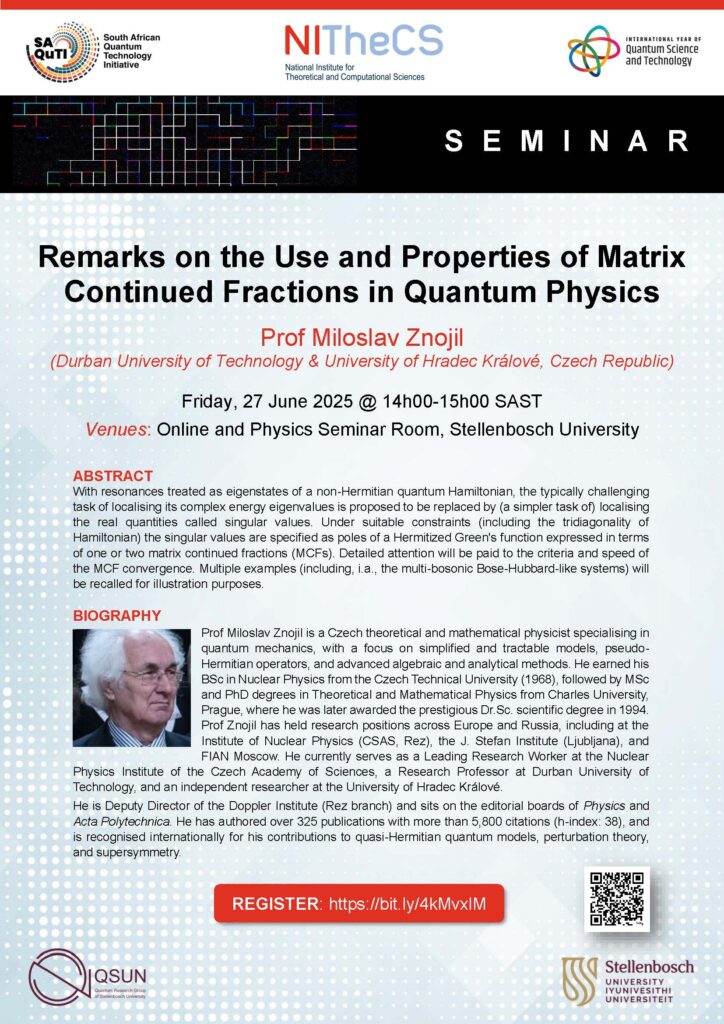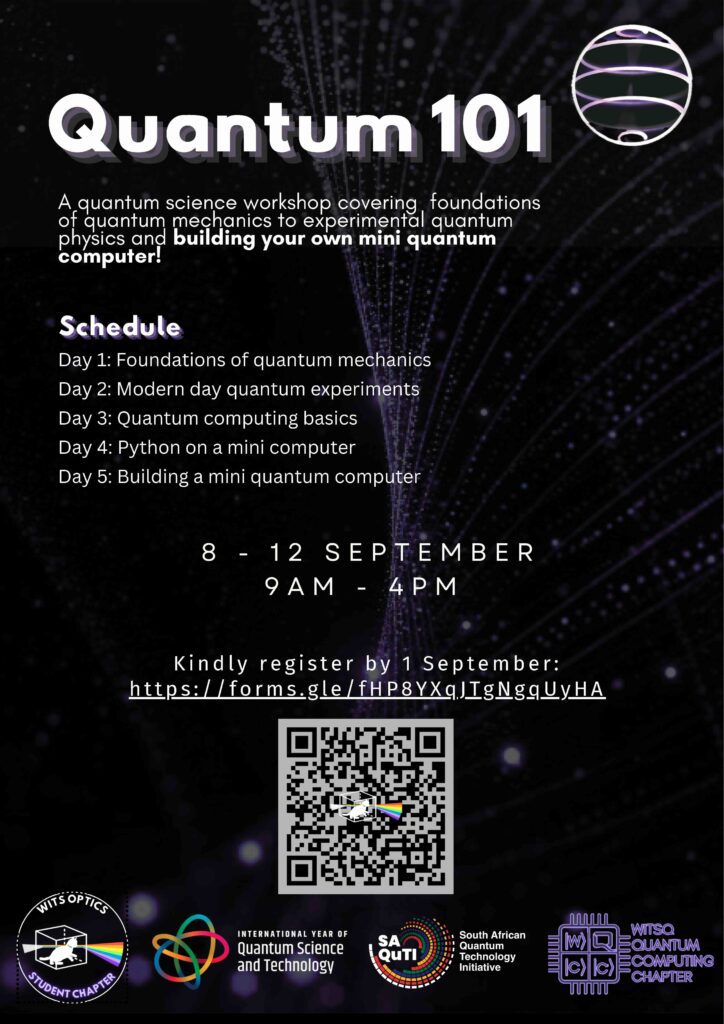Johannesburg City Parks and Zoo’s Celebration of National Science Week 2025
In celebration of National Science Week 2025 and the International Year of Quantum Science and Technology (IYQ), the South African Quantum Technology Initiative (SA QuTI) brought quantum science to life at the Johannesburg Botanical Gardens. This exhibit offered an engaging experience for high school learners, introducing them to foundational quantum concepts such as entanglement through interactive displays. The event sparked curiosity and inspired a deeper appreciation for science in an outdoor setting.
National Science Week Launch Day

As part of the International Year of Quantum Science and Technology (IYQ), the South African Quantum Technologies Initiative (SA QuTI) proudly participated in the launch of National Science Week at Tshwane University of Technology (TUT). The exhibit featured engaging and interactive displays aimed at sparking curiosity and raising awareness of quantum science among both high school learners and university students. Through hands-on demonstrations and insightful presentations, SA QuTI showcased the transformative potential of quantum technologies, encouraging young minds to explore the future of science and innovation.
Remarks on the Use and Properties of Matric Continued Fractions in Quantum Physics
Q3 American Physical Society Community Meetup
The American Physical Society (APS) Austin Meetup on Thursday, September 11, 2025, will feature a panel discussion titled “The Race to Scale: Which Quantum Technologies Will Win Which Applications, and Why?” Experts in quantum hardware will explore the leading platforms in computing, networking, and sensing, as well as the state of quantum error correction for commercial applications.
The event provides an opportunity to gain insights into the future of quantum technologies and their practical implications across various industries. This gathering will bring together academia, industry leaders, and innovators for a discussion on the advancements shaping the quantum landscape. Here is the website, and registration is open:
Science Spaza Space – Quantum Edition: ‘Women Changing Quantum Physics’
As part of the International Year of Quantum (IYQ), the ‘Science Spaza Space: Quantum Edition’ brings quantum science to life through engaging, youth-friendly storytelling and accessible science communication. This special edition, featured in the Daily Maverick, showcases how quantum concepts – often seen as complex and abstract – can be made relatable and fun for learners, educators, and the general public.
Through comics, interviews, and interactive content, the issue explores quantum ideas in everyday language, helping to spark curiosity and build understanding across diverse communities. It’s a celebration of collaboration, creativity, and the power of science to inspire.
Distributed in Johannesburg, Cape Town, and throughout science centres across South Africa.

Public Evening Event at 2nd DPG Fall Meeting
Quantum Technologies for Next-Generation Diagnostic Devices
We’re excited to welcome Dr. Kelvin Mpofu from the CSIR as our featured speaker in this engaging seminar series. The event will be held in a hybrid format, with in-person attendance at Wits, Gatehouse, and online participation available.
Seminar Topic: Quantum technologies for next-generation diagnostic devices.
Quantum Across the Blocks II
From spacetime to Quantum reality: What’s next
Join us for an exciting and thought-provoking seminar by Prof. Robert de Mello Koch at the University of the Witwatersrand, exploring the evolution of our understanding of nature – from Special and General Relativity to the mysteries of Quantum Mechanics and the future of Quantum Gravity.







